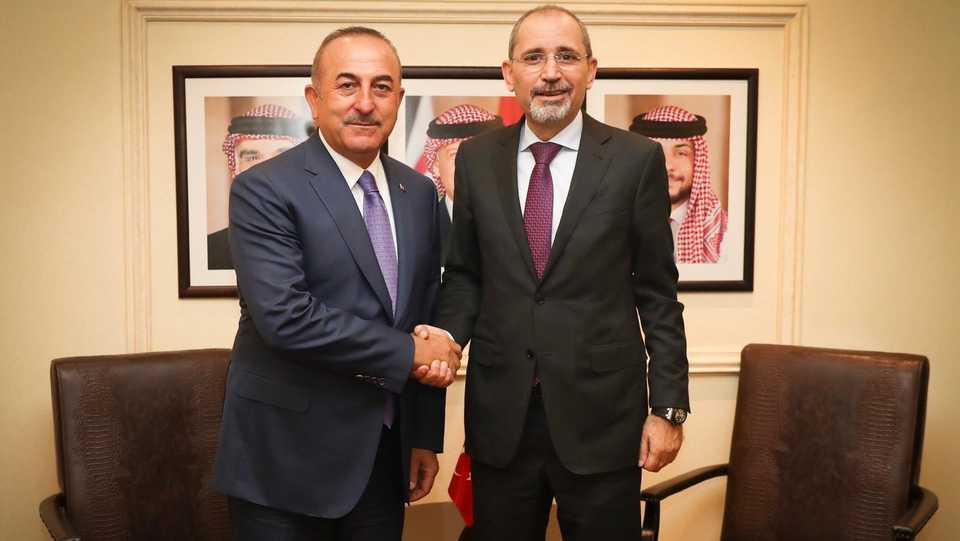
Top Turkish and Jordanian officials sought to deepen relations in talks on Tuesday, days after the kingdom restored full ties with Ankara’s ally Qatar, in what officials say is a realignment by Jordan away from longtime Gulf partners.
Visiting Turkish Foreign Minister Mevlut Cavusoglu met his Jordanian counterpart Ayman Safadi, and Turkey’s intelligence chief, defence minister and military chief of staff also had talks with senior Jordanian officials, diplomatic sources said.
A brief foreign ministry statement said both countries had agreed to “develop their ties and expand economic cooperation and deepen coordination on regional issues.”
Evaluated bilateral relations & regional issues w/@AymanHsafadi FM of brotherly #Jordan. New economic cooperation agreement to be signed very soon in #Ankara will further our relations. Thanked my friend Ayman for his upcoming address at the 11th Ambassadors Conference. pic.twitter.com/snz1UQJ4GT
— Mevlüt Çavuşoğlu (@MevlutCavusoglu) July 23, 2019
In a snub to Saudi Arabia, Jordan appointed a new ambassador to Doha last Tuesday, two years after withdrawing its ambassador in solidarity with Gulf allies who cut ties with Doha, accusing it of backing terrorism, a charge Qatar denies.
Officials and diplomats privately say the warming of ties with Turkey and Qatar is a turnaround in a foreign policy that has in recent years backed Riyadh and the United Arab Emirates on most regional and inter-Arab conflicts.
Amman has long depended on Arab monarchies in the Gulf to shore up its debt-burdened economy.
However, Gulf states in recent years reneged on pledges to help debt-burdened Amman with billions of dollars to soften the impact of International Monetary Fund austerity reforms on its cash strapped economy.
Gulf Arabs have shifted their foreign policy focus to their rivalry with Iran, with some officials even calling for normalised ties with Israel. That development has left Amman more isolated in confronting Washington’s possible jettisoning of a Palestinian state under any future Middle East peace plan.
Jordan even abrogated a free trade pact with Turkey last year under pressure from Gulf allies seeking to curb the Turkish role in the region, businessman and officials privately say.
Diplomatic sources say the stepped-up rapprochement with Ankara and Doha has accelerated since US President Donald Trump reversed decades of US policy and recognised Jerusalem as the capital of Israel.
Unlike other Gulf states, Turkish President Tayyip Erdogan has been vocal in endorsing the role of King Abdullah’s Hashemite dynasty as custodian of Muslim religious sites in the holy city.
Amman fears Trump’s yet to be disclosed peace plan seeks to challenge that role.
Many Jordanians also have strong historical ties with the country’s former Ottoman ruler, and in recent years trade and private investment has surged with thousands of Jordanians visiting and settling there, official figures show.
In another sign of divergence with the Gulf, the kingdom in recent months has lifted curbs on the activity of the Muslim Brotherhood, the country’s main opposition group, signalling a break with Gulf states, many of whom see it as a terrorist organisation. The Brotherhood says it does only peaceful work.










Discussion about this post